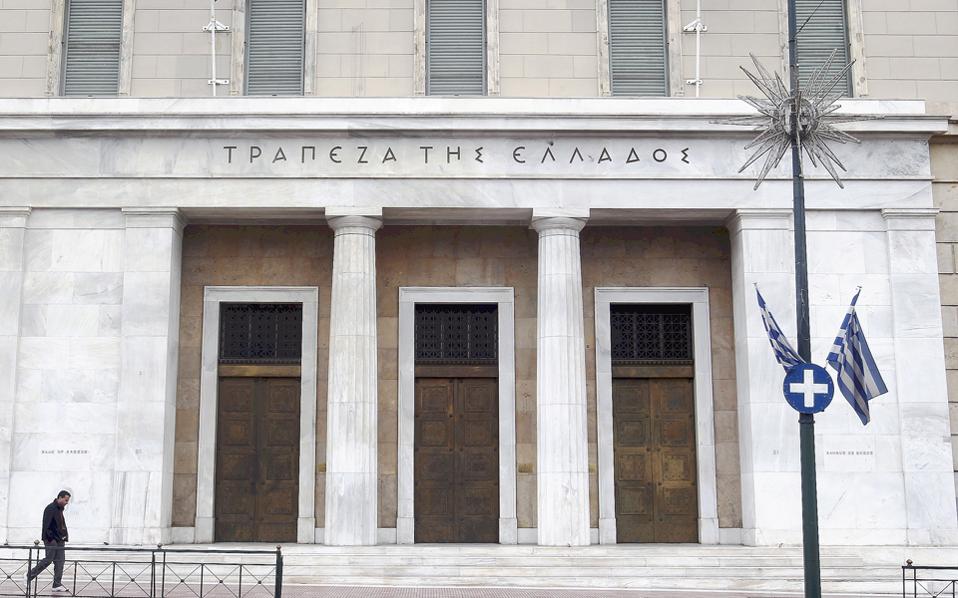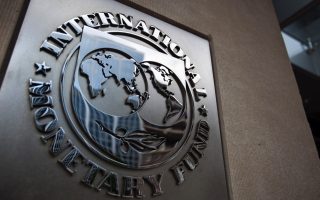Bad loans haunt Greek banks seeking new start

Turned down for a 10,000 euro ($11,100) loan, George Sarris is one of hundreds of thousands of small business owners shunned by Greek banks.
Pointing to the parliament building overlooking his small cafe in Athens' Syntagma Square, the 35-year-old blames Greece's turbulent politics for the troubles of its banking system.
"It took three years for the country to come close to turning around," said Sarris, referring to modest economic growth in the second half of 2014, which has since halted.
"After the January 25 elections it all went downhill. Now things are bleak. For me, there is no salvation here."
This is the background against which Greeks head to the polls again on Sept. 20, the country's fifth elections since its debt crisis started in 2009. The snap poll was triggered by the resignation of leftist Prime Minister Alexis Tsipras, whose agreement to an 86 billion euro bailout cost him the parliamentary majority of his coalition government.
Six months of wrangling with creditors had led to a 40 billion euro deposit run, culminating in Greek banks being shut and capital controls enforced at the end of June.
Greek banks were badly wounded and limited the little lending they did even further, fearful about their exposure to loans many borrowers may never be able to pay back.
This fear of a rise in so-called non-performing loans (NPLs) is a deterrent not only to the banks, but also to potential investors whose money is needed to recapitalize them.
While banks have reopened and capital controls have somewhat eased, small business owners such as Sarris, who account for about 75 percent of private sector jobs, are starved of credit.
"All our suppliers have stopped accepting credit. Everyone is short on cash. I still pay salaries, but I'm behind on my taxes…My business is down 35 percent this year and I don't want to lose more customers," said Sarris.
The immediate outlook for Greece is equally bleak.
Along with its lenders, Athens expects gross domestic product to contract 2.3 percent this year and another 1.3 percent next year before the economy bounces back. These projections are in the ECB’s baseline scenario in a health check of Greek banks, a banker with knowledge of the matter said.
Stress tests
The deal struck by Tsipras includes a recapitalization of the banks. However, interviews with some of the sector's top executives, as well as international investors, suggest this will not be sufficient on its own to kick start lending.
"The economy's return to growth and its funding from the banking system will be affected by a number of factors, including political stability, the implementation of bailout reforms, a successful conclusion of the first review in October and the completion of banks' recapitalization with private investor participation," Fokion Karavias, Chief Executive of Eurobank, one of Greece's top four banks, said.
The banks' needs will be known once asset quality reviews, currently underway, and subsequent "stress tests", are completed, likely by the end of October. The latest bailout, the country's third, allocates up to 25 billion euros for bank recapitalization, although bank insiders say the figure is more likely to be in the 10 billion to 15 billion euro range.
Bank executives who spoke to Reuters on condition of anonymity also say there is likely to be little difference in the health of the four top lenders – National Bank of Greece, Alpha Bank, Eurobank and Piraeus Bank – although National Bank is seen as somewhat stronger because it has assets in the Balkans and Turkey.
But convincing private investors to put their money into the banks will be a major test of confidence.
The more private investor money – from U.S. hedge funds, private equity firms and other specialist investors – that can be raised, the less bailout money will be needed.
A Greek bank rescue fund financed by Greece's creditors pumped 25 billion euros into the banks in exchange for shares in 2013 and already holds majority stakes in National Bank, Piraeus Bank and Alpha Bank, and a 35 percent stake in Eurobank.
Meanwhile private investors who injected 3 billion euros into Greek banks in the 2013 recapitalization, and bet another 8.5 billion euros on them last year, now face dilution.
"Now international investors have to be won over again," said Apostolos Gkoutzinis, who leads law firm Shearman & Sterling LLP's European capital markets group and advised Piraeus Bank on its previous 1.75 billion euro recapitalization.
Bad loans
The biggest deterrent is not lost deposits, which have been covered by the European Central Bank-controlled ELA, or even the banks' pummeled share prices, which some see as a buying opportunity. It is loans that could turn bad, spelling higher than expected capital shortfalls.
Greek banks are estimated to have had more than 100 billion euros of exposure to such bad loans in the first quarter of 2015, some 40.8 percent of their loan books.
To address this, the banks tried to sell some of them last year, mostly those to companies, which account for the majority of their bad loans. Piraeus Bank put together a deal to sell corporate loans to private equity firm KKR & Co LP under which Piraeus would have continued to administer the loans. But this unraveled when SYRIZA came to power.
One option raised has been to set up a "bad bank," to give the banks a clean sheet. While this puts more taxpayer money at risk it may be Greece's best option to attract international investors, and get banks lending again.
Another solution to the bad loan problem proposed privately by Greek bank executives is the sale of contingent convertible debt (CoCos) as part of the recapitalization. These bonds convert to equity and act as a cushion if a bank's capital falls below a set level. Investors are paid higher rates for the risk.
"How likely is it that further capital raisings might be needed in the future? Will the Greek banks be capitalized enough to sustain those kinds of bond payments and grow their businesses? If they don't, then those bonds could be high risk," said Justin Craib-Cox, a fund manager at Aviva Investors.
Time is tight to find a solution which will protect bank depositors. If the bank recapitalization is not completed by the end of the year, which is possible given political uncertainty, then the European Union's Bank Recovery and Resolution Directive becomes enforceable. This could mean losses for unsecured depositors with more than 100,000 euros in their accounts.
If, on the other hand, a new government is quickly formed that sticks to the terms of the bailout, the European Central Bank could start buying Greek bonds, lowering the financing costs of its banks and making such "haircuts" less likely.
"The single largest difference between Greece's banking system and those of other European countries is the political and economic uncertainty, which makes a huge difference in the way you can price things," said Brad Palmer, executive vice president at Sankaty Advisors LLC, which invests in bad loans.
[Reuters]





